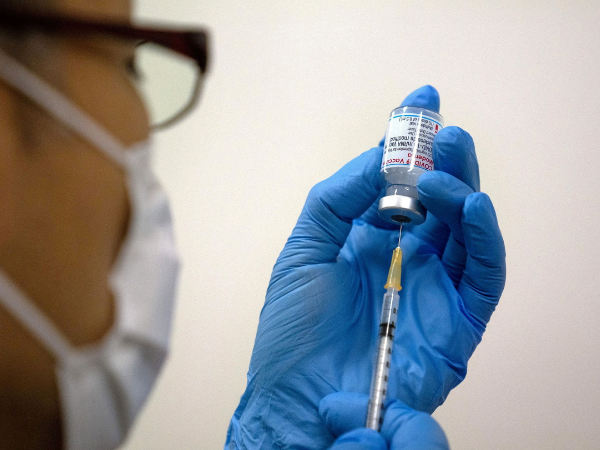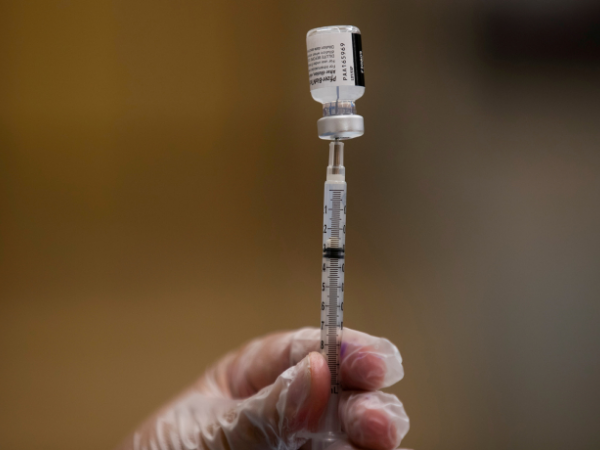US FDA vaccine committee disputes boosters for ages 16 and up
The debate over whether Americans should receive a booster dose of the Pfizer/BioNTech COVID-19 vaccine moved to a panel of independent expert advisers to the U.S. Food and Drug Administration on Friday.
While U.S. health officials, some other countries and vaccine makers have said boosters are needed, many scientists and vaccine experts disagree.
Many of them say that while there is growing evidence that boosters provide increased protection against infection and severe disease to people aged 65 and older, there is not enough evidence that they are needed by younger ages.
Because of that some scientists – and Wall Street analysts – have said that they expect boosters to first be used in the United States by older people, but it is unclear how that might transpire after today’s meeting.
Pfizer’s application to the FDA for a booster was for ages 16 and up, and the panel has been asked to weigh only one question: does the safety and effectiveness data support approval of a booster at least six months after the second dose for people aged 16 and older?

Medical staff prepare Moderna coronavirus (COVID-19) vaccine to be administered at newly-opened mass vaccination centre in Tokyo, Japan, May 24, 2021. Carl Court/Pool via REUTERS
The FDA staff said in documents prepared for the committee this week that the vaccine Pfizer Inc developed with Germany’s BioNTech SE is still very effective at preventing severe illness and death and that the evidence is mixed on whether its efficacy declines over time.
U.S. Centers for Disease Control and Prevention official Sara Oliver in a presentation to the expert advisers on Friday questioned whether waning vaccine protection is due to the passage of time after the first shot, or the spread of the Delta coronavirus variant.
The highly transmissable Delta variant has caused a surge in hospitalizations and deaths, mostly among the unvaccinated. But infections among fully vaccinated people have risen and they can spread the virus on occasion, mostly to unvaccinated people.
The Biden administration is also hoping that a booster shot will help decrease these infections and slow transmission.
Pfizer, which is arguing for broad use of a third shot, submitted data from an analysis of over 300 participants in a late stage clinical trial showing that the vaccine’s efficacy diminished by around 6% every two months after the second dose, and that an additional shot boosted immunity.
The FDA’s Vaccines and Related Biological Products Advisory Committee will also consider data from Israel, which has been administering booster doses of the Pfizer/BioNTech vaccine.
It began offering a COVID-19 booster to people as young as age 12 last month, expanding a campaign that began in July for people over 60.
An analysis by Israeli scientists published on Wednesday in the New England Journal of Medicine found that among 1.1 million people age 60 or older who had been fully vaccinated at least five months earlier, those who received a booster were less likely to be infected or become severely ill than those who did not get the third shot.
The Israeli Health Ministry said in documents on Friday that immunity against infection declined during July among all age groups, but particularly among people aged 60 and over who had been vaccinated in January.

A nurse fills a syringe with Pfizer vaccine as mobile vaccination teams begin visiting every Los Angeles Unified middle and high school campus to deliver first and second doses of the coronavirus disease (COVID-19) vaccines in Los Angeles, California, U.S., August 30, 2021. REUTERS/Mike Blake/File Photo
Immunity against severe disease dropped in that older group, and such a decline may occur in younger groups aged 50 to 59 as well as 40 to 49, it said. The ministry also said the booster dose did not raise new safety issues.
‘LARGER POPULATIONS MAY TAKE LONGER’
Wall Street analysts see the additional shots ultimately getting approved for a broad population.
“We expect a potential positive FDA support for boosters for elderly ahead of Biden’s rollout, but larger populations may take longer for broad support and approval,” Jefferies analyst Michael Yee said in an email.
Scientists say the strongest evidence for boosters is for older adults and other high risk populations.
Related Articles
“My guess is we are going to end up with a recommendation for booster doses for a certain subpopulation, such as adults older than 65,” said Bill Moss, executive director of the International Vaccine Access Center at the Johns Hopkins Bloomberg School of Public Health.
More than 1.9 million Americans have already gotten a booster dose after the government authorized them for people with compromised immune systems, according to the CDC.
The vote is scheduled for between 2:25 p.m. EDT and 4:45 p.m. EDT (1825-2045 GMT).
The United States is planning a booster campaign for the week of Sept. 20, contingent on backing by the FDA and CDC. Eight top health officials in the Biden Administration – including the heads of the FDA and the CDC – said in August they believe booster shots will be needed because emerging data shows that protection against COVID-19 decreases over time.
(Reporting by Manojna Maddipatla and Ankur Banerjee in Bengaluru; Editing by Caroline Humer, Bill Berkrot and Steve Orlofsky)

